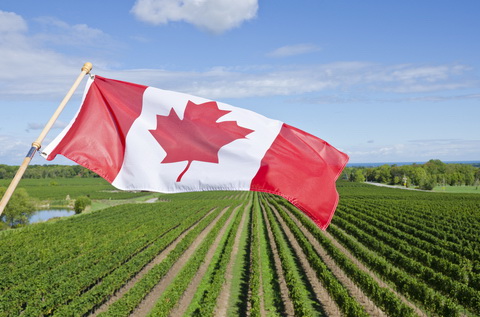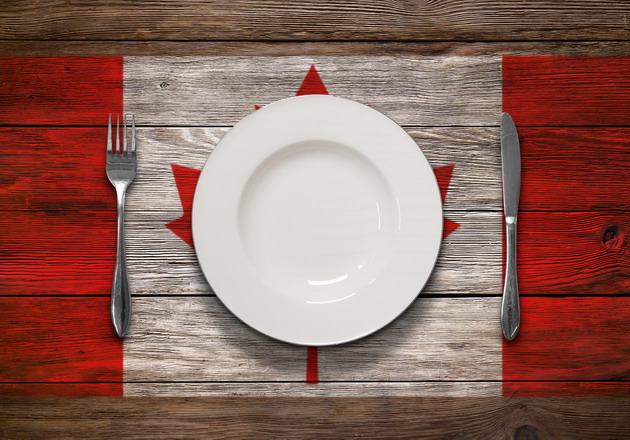From CTV News at 6 pm:
The Canadian wine industry has been hit hard this year with frost, wildfires and new taxes. The biggest challenge though may be convincing Canadians that the wines are worth buying. Here with her take on the issue is our resident wine expert Natalie MacLean.
How do Canadian wines stack up against foreign imports?
Despite the fact there are 700 wineries across this country, more than 100 in Quebec, foreign imports dominate 70% of our domestic wine market sales.
Why don’t we drink more of our own wines?
We’re not aware of how much Canadian wine has improved in the last five years, let alone in the 150 years we’ve been making it. We still hold prejudices that are as dated as lava lamps. We’re also bound by provincial regulatory barriers that make it more difficult to ship a wine from B.C. to Quebec than a handgun.

Let’s dig into some of those factors, starting with the quality of the wines.
The other six reasons don’t matter unless the wines taste great, and many Canadian wines do. As someone who has reviewed and rated wines for twenty years, I’ve seen, and tasted, the dramatic rise in Canadian wine quality. They also have the international competition medals and scores to prove it. Canadian wines suffer from the Céline-Dion-Shania-Twain Syndrome: They need validation abroad before they’re accepted on their home turf. Well, they’ve been there, done that.
The bonus is that Canada’s cool climate produces grapes that aren’t loaded with sugar, so they don’t ferment to high alcohol. Low-alcohol wines don’t overwhelm food with heat or sugar, yet still have lots of flavour.
What about selection?
Icewine, the dessert elixir, put Canada on the global winemaking map and remains our leading export. However, dry still and sparkling wines now capture my attention as a wine writer. We excel at classic grapes such as chardonnay, riesling, pinot noir, cabernet franc and gamay.
Canada’s geography is one of the largest and most diverse in the world, from the western Rockies to the Eastern Townships to the Bay of Fundy. Therefore, riesling from BC, Ontario, Quebec and Nova Scotia will each offer wildly different expressions in the glass. Yet most of them aren’t in the government liquor stores because they don’t produce enough wine to fill the big chains. But small is good when it comes to wine because it’s often artisanal.
Artisans du Terroir Bouquet
Quebec, Canada
So buy directly from the wineries as most will ship to your doorstep, like this wine from Quebec.

Some people complain that the wines are too expensive.
If you think Canadian wines are expensive, you’re doing it wrong. Comparing our wines to those from warm climates that don’t have to battle frost, mildew and other costly threats is like comparing ballet to football. Our wines will never be the hulking defensive linebacker, but they do have effortless grace to pirouette with pleasure on your palate. Our pinot noir, chardonnay and sparkling wines are a third of the price of those from France. Yes, they taste different because they come from different places, but the quality is on the same parallel.
What about the economic factors related to the wine industry?
Wine is the highest value-added agricultural product we produce in this country. Every bottle of 100% Canadian wine contributes $80 to our economy versus only $18 for an imported wine, injecting more than $11.6 billion into our economy every year.
The wine industry also creates 45,000 jobs both directly and indirectly through tourism, restaurants, hotels and manufacturing. These jobs are often in rural areas on family-owned grape farms, most of which have fewer than 20 employees.

There’s also an environmental aspect?
Drinking local wines means not shipping wine in weighty bottles thousands of kilometres. Many Canadian wineries farm organically and/or sustainably. Voting with your dollars encourages these practices. Vacationing in wine country often means a drive rather than a flight. It also means that these family farms might survive for the next generation.
Westcott Vineyards Estate Chardonnay
Niagara Escarpment, Ontario V.Q.A., Canada
There’s room on our table for international wines, but we also have an unexplored country beneath our feet and in our glass.
Thank you, Natalie. You can find the wines Natalie mentioned on her website at www.nataliemaclean.com.









